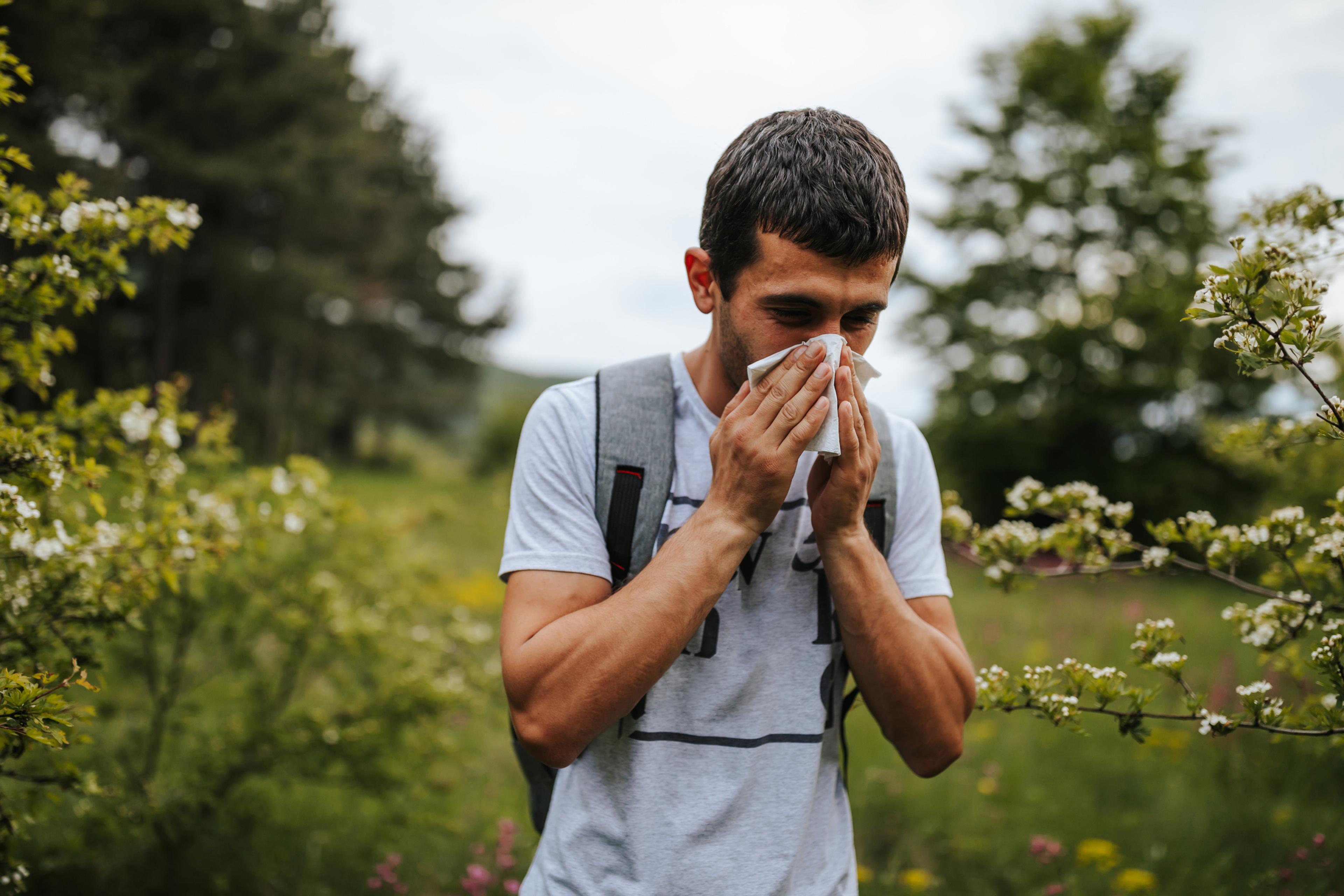
While many are rejoicing warmer spring weather on the horizon, those with seasonal allergies might be bracing for symptoms such as sneezing, a constantly runny nose and itchy, watery eyes.
Allergies are one of the most common chronic diseases in the U.S., occurring when the body’s immune system overreacts to a substance it sees as harmful. When the cause of that reaction is pollen from trees, grasses or weeds, it's identified as seasonal allergies (also called hay fever or seasonal allergic rhinitis). To find out exactly what’s causing your symptoms, an allergist can perform an allergy test. There are two types:
- Blood test: This test, which is done by taking a sample of your blood, measures levels of immunoglobulin E against specific allergens. They usually screen for at least 10 of the most common allergy triggers, including dust, pet dander, pollen and molds. They can also help you diagnose a food allergy. Side effects of these tests can include swelling and redness, pain, slight bleeding (where the needle was injected) or a faint feeling during the test.
- Skin test: For this one, a small amount of a suspected allergen is placed on or below the skin to see if a reaction develops. Skin tests aren’t usually done for seasonal allergies (they are more typically done if you have hives, food allergies, skin rashes or penicillin/venom allergies). If you are allergic to any of the allergens, you might experience symptoms such as itching, stuffy nose, watery red eyes or a rash.
Once the specific allergens are identified, your allergist might recommend medication (there are over the counter and prescription options) or suggest lifestyle changes, like keeping windows shut and monitoring pollen counts. There is also a treatment called immunotherapy, which is a series of shots that help your body stop overreacting to the allergen.
If you’re a Blue Cross Blue Shield of Michigan or Blue Care Network member, you can log on to bcbsm.com to find an allergist in your network and explore the services covered under your plan. For more tips on keeping up with your health, check out these other blogs:
- After Your Routine Physical: How to Understand Your Results
- Is It a Cold or Seasonal Allergies?
- Food Allergies in Michigan Schools: How Research is Dispelling Myths and Lighting the Way Forward
Photo credit: wavebreakmedia






